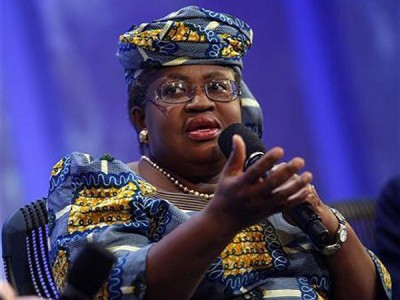 The Federal Government on Wednesday denied the claims by a former president, Chief Olusegun Obasanjo that it squandered the country’s foreign reserve.
The Federal Government on Wednesday denied the claims by a former president, Chief Olusegun Obasanjo that it squandered the country’s foreign reserve.
In a statement yesterday, the FG, through the ministry of finance, said: “It is absolutely not true that the Administration of President Goodluck Jonathan has squandered the nation’s reserves”.
The ministry noted that “facts are clear and indisputable. At the end of May 2007, Nigeria’s gross reserves stood at $43.13 billion – comprising the CBN’s external reserves of $31.5 billion, $9.43 billion in the Excess Crude Account, and $2.18 billion in Federal Government’s savings”.
This fall in reserves, the ministry explained, “Was largely a result of the vicissitudes of the global economy and oil market which caused the CBN to intervene, using some of the reserves, to defend the value of the Naira”.
The ministry said: “It is not correct to say that the nation’s external reserves were dipped into or misapplied by the Administration. Anyone familiar with foreign reserves management will be aware that the Federal Government cannot dip its hands into the external reserves. Like in other countries, the management of external reserves is one of the statutory mandates of the Central Bank of Nigeria (CBN). Section 2 sub-section (c) of the CBN Act (2007) states that the Bank shall “maintain external reserves to safeguard the international value of the legal tender” – in other words, to defend the value of the Naira. No President since the democratic dispensation has contravened this Act.”
The reserves it added was used to settle both public and private sector foreign currency obligations, “including the importation of goods such as equipment for power sector. Whenever an agency of government or a private individual/company needs to make a payment in foreign currency (e.g. payment of goods and services, settlement of external debt, etc) it must provide the naira equivalent to the CBN in exchange for the required foreign currency.
“The reality is that since May 2007, the reserves have fluctuated in line with developments in the international oil market, rising from $43.13 billion at that time, peaking at $62 billion in September 2008 during the Yar’adua/Jonathan Administration when oil prices reached a peak of $147 per barrel, and falling subsequently to a low of $31.7 billion in September 2011.
“Nigeria’s reserves during the period were not squandered but used appropriately in the course of normal transactions required for the development of the Nigerian economy”.
On the Excess Crude savings, the ministry said it is a component of the reserves, which “was largely used to cushion the economy at the height of the global financial crisis in 2008-2009. As a result, Nigeria was one of the few countries in the world that did not seek assistance from international financial institutions at that time.
“Similarly, savings in the ECA were also used to pay for fuel subsidies for the entire nation and that sharing continued after the crisis ended. Starting in 2012, such payments have been published each time they are made.
“The savings in the ECA would now have been higher but for the fact that a number of Governors, against strong professional advice, actively kicked against continuous building up of the ECA and, indeed, pushed for its sharing. It is on record that states even took the Federal Government to court on this matter, and the case is still pending at the Supreme Court”.
The ministry, however, pointed out that the Jonathan administration built the first ever Sovereign Wealth Fund (SWF) for the nation in which savings are being made for future generations of Nigerians.
Support InfoStride News' Credible Journalism: Only credible journalism can guarantee a fair, accountable and transparent society, including democracy and government. It involves a lot of efforts and money. We need your support. Click here to Donate

1 Comment
All we know is that we need change in 2015. No more corruption